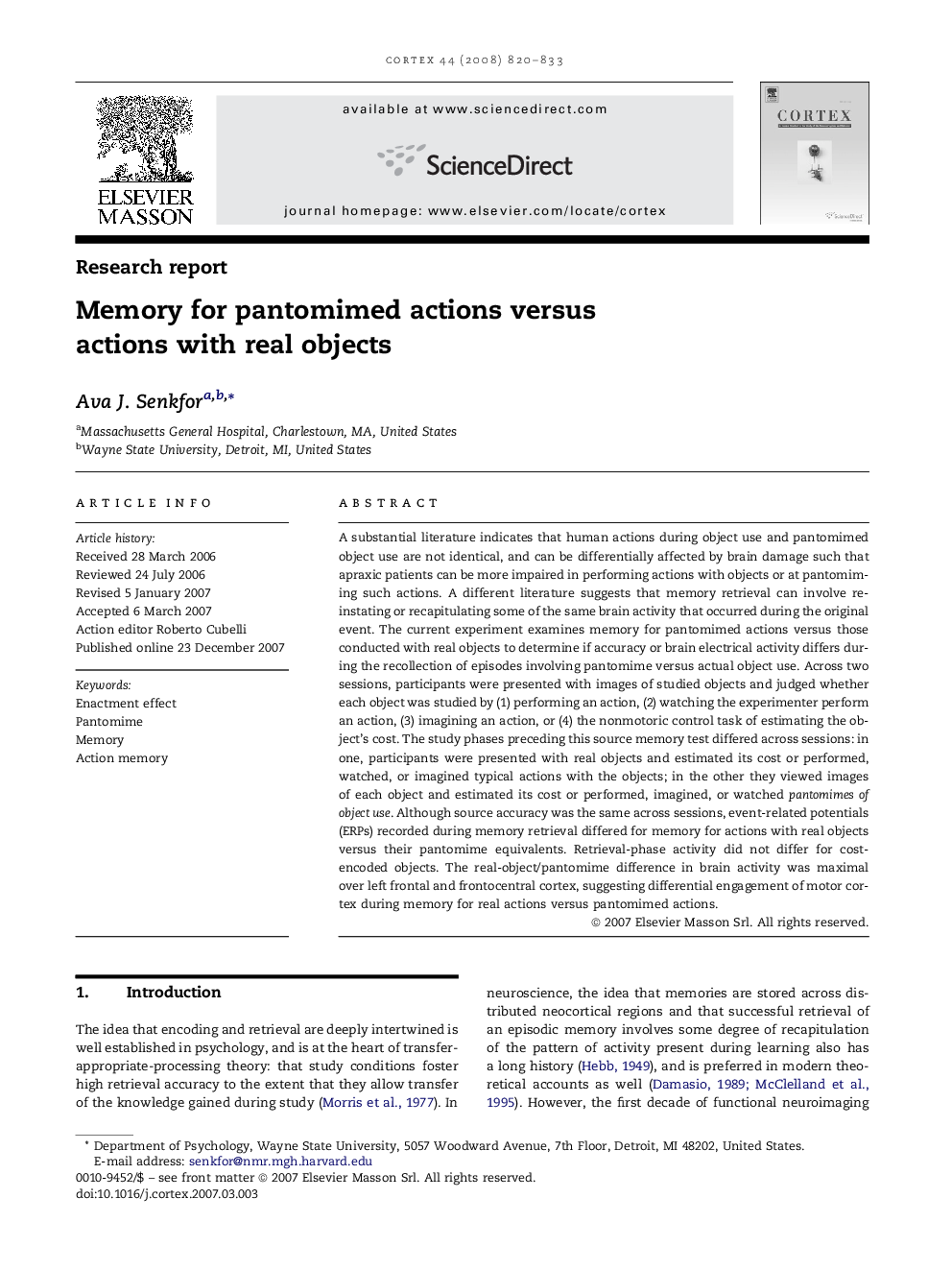| Article ID | Journal | Published Year | Pages | File Type |
|---|---|---|---|---|
| 942735 | Cortex | 2008 | 14 Pages |
A substantial literature indicates that human actions during object use and pantomimed object use are not identical, and can be differentially affected by brain damage such that apraxic patients can be more impaired in performing actions with objects or at pantomiming such actions. A different literature suggests that memory retrieval can involve re-instating or recapitulating some of the same brain activity that occurred during the original event. The current experiment examines memory for pantomimed actions versus those conducted with real objects to determine if accuracy or brain electrical activity differs during the recollection of episodes involving pantomime versus actual object use. Across two sessions, participants were presented with images of studied objects and judged whether each object was studied by (1) performing an action, (2) watching the experimenter perform an action, (3) imagining an action, or (4) the nonmotoric control task of estimating the object's cost. The study phases preceding this source memory test differed across sessions: in one, participants were presented with real objects and estimated its cost or performed, watched, or imagined typical actions with the objects; in the other they viewed images of each object and estimated its cost or performed, imagined, or watched pantomimes of object use. Although source accuracy was the same across sessions, event-related potentials (ERPs) recorded during memory retrieval differed for memory for actions with real objects versus their pantomime equivalents. Retrieval-phase activity did not differ for cost-encoded objects. The real-object/pantomime difference in brain activity was maximal over left frontal and frontocentral cortex, suggesting differential engagement of motor cortex during memory for real actions versus pantomimed actions.
